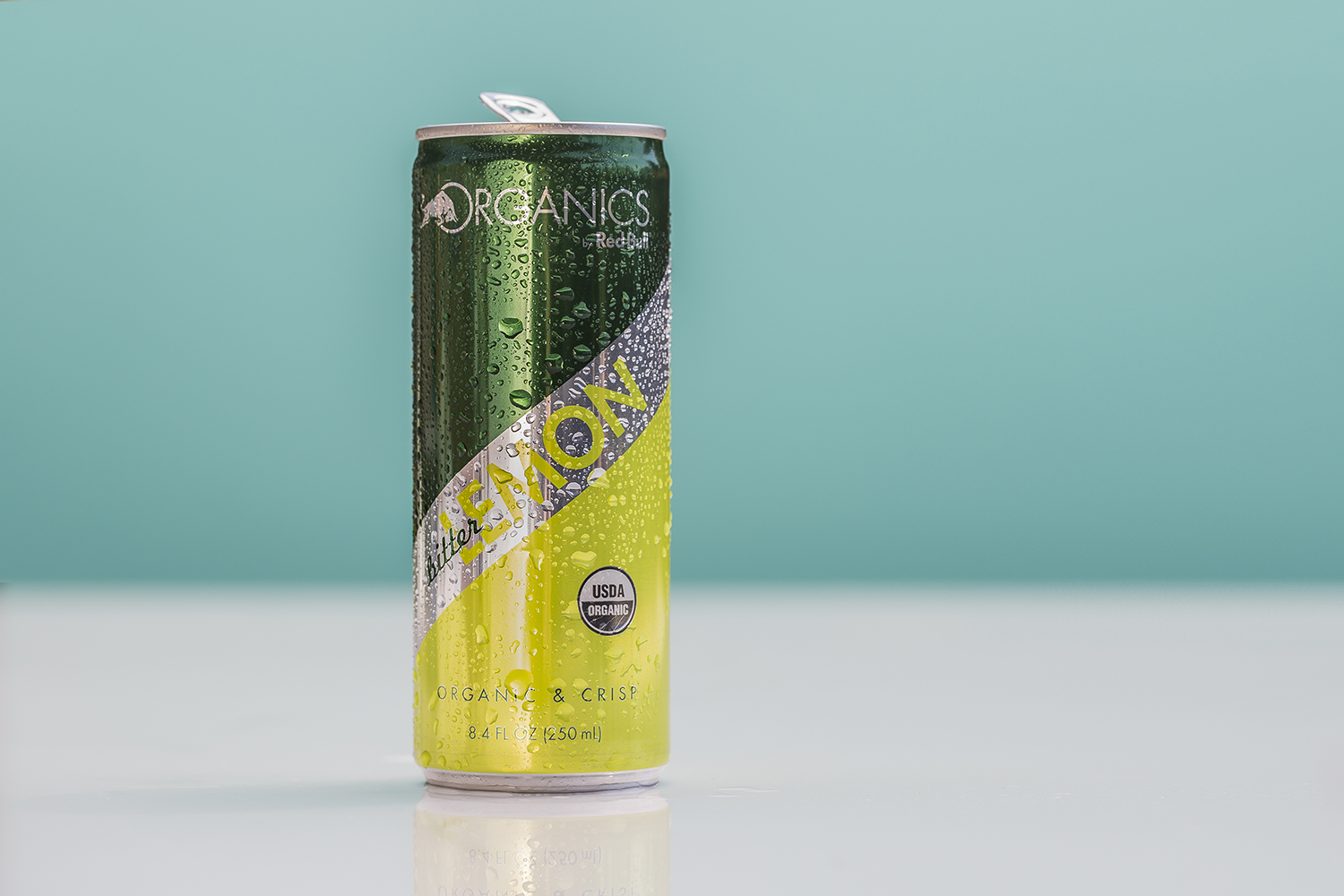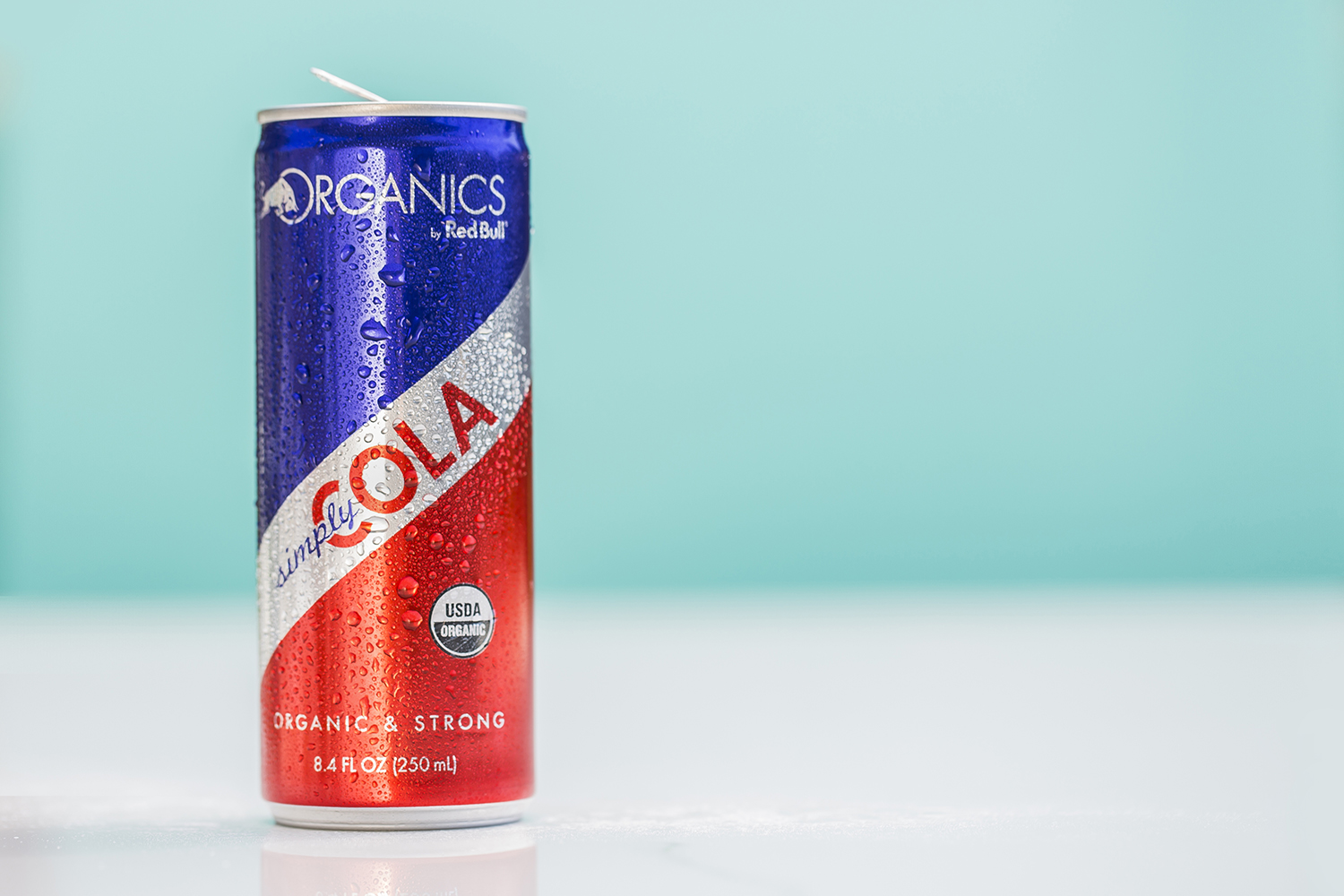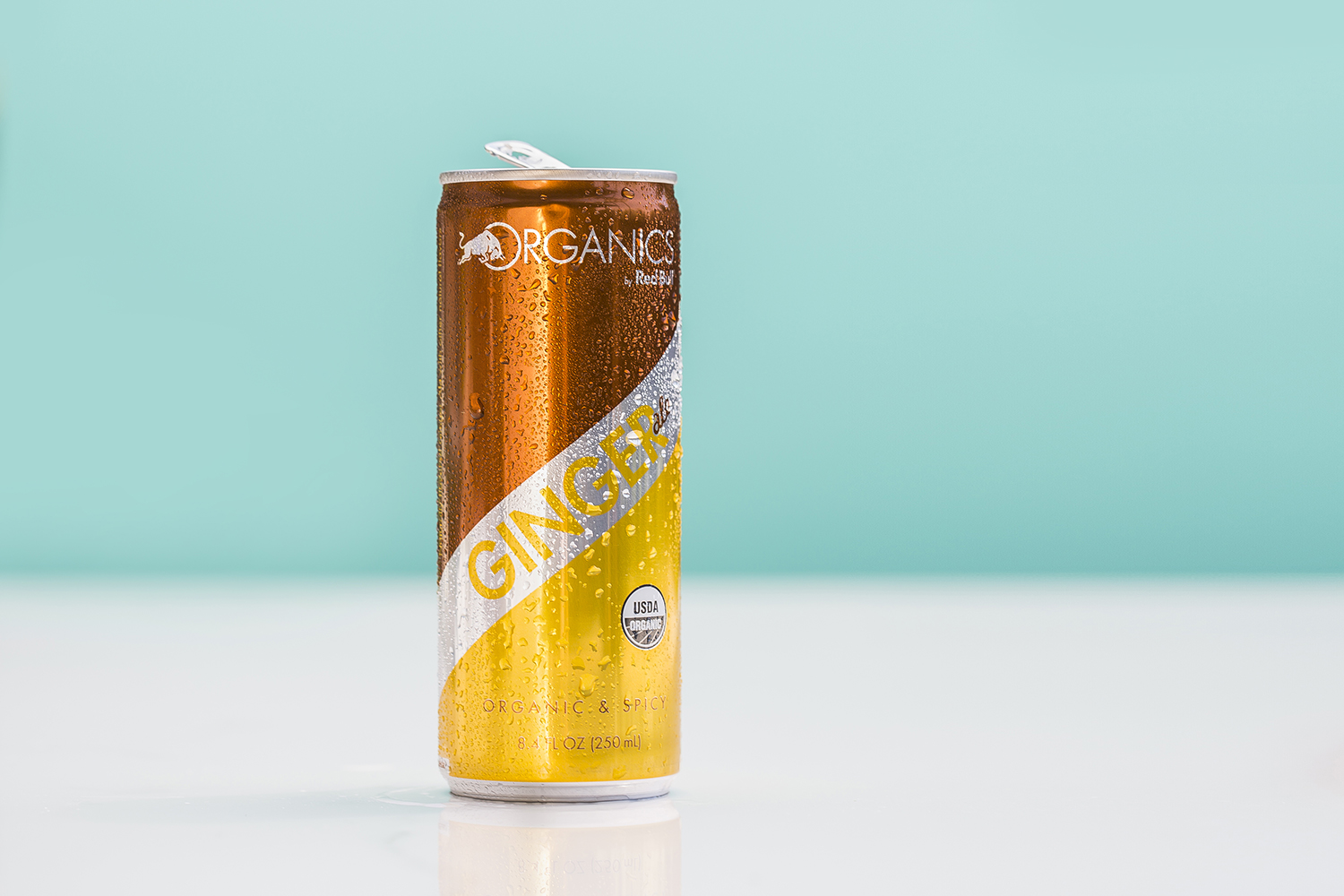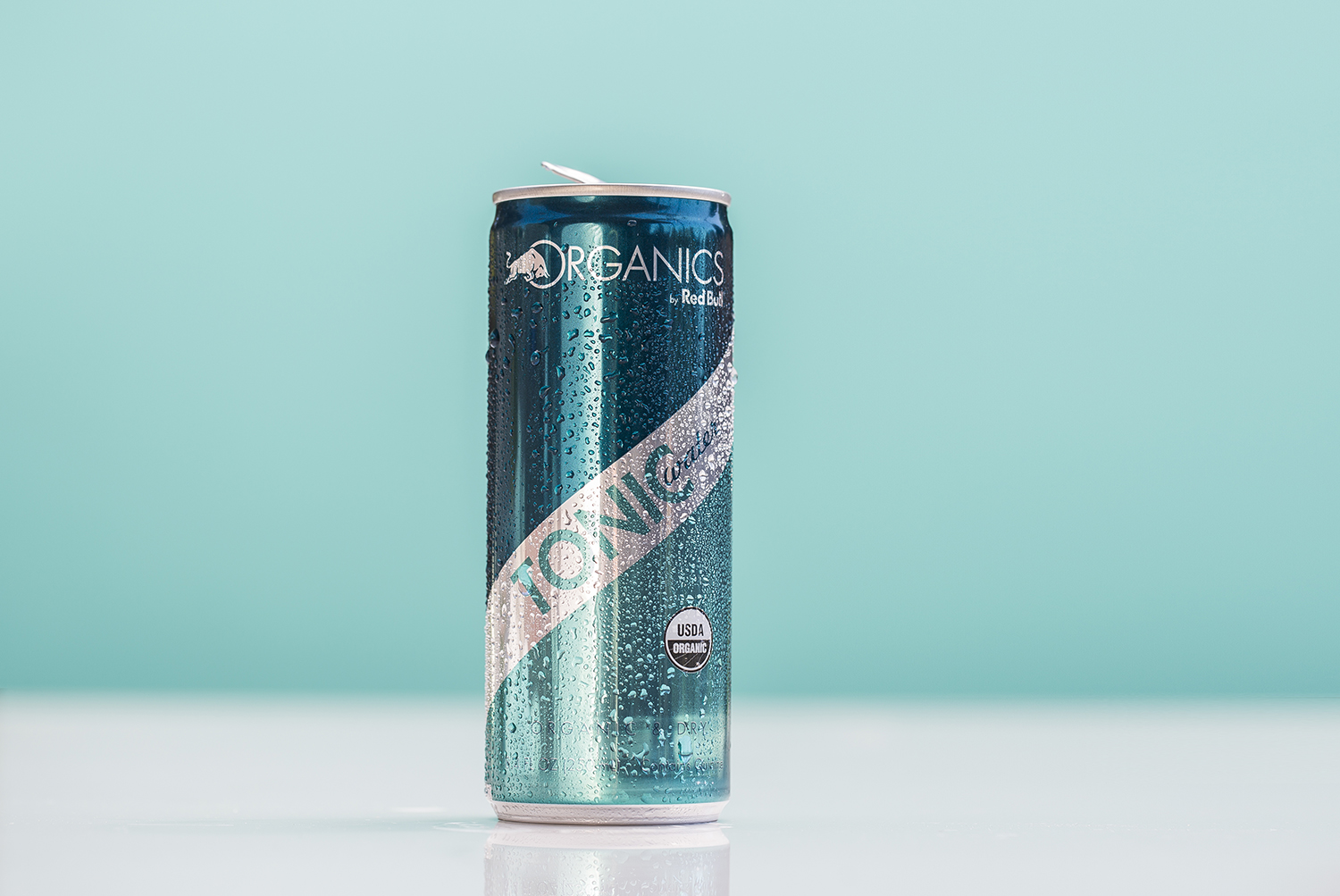The common bar cry, “vodka Red Bull!” is about to change, because Red Bull is now in the soda-making game — organic sodas, that is — under a new line aptly called ORGANICS.
ORGANICS will release four carbonated drinks this summer: Red Bull Simply Cola, Bitter Lemon, Ginger Ale, and Tonic Water, all made with ingredients the company says come from “natural sources.” ORGANICS lists some of their ingredients as alpine water, sugar from organic sugar beets, lemon juice concentrate, and others we’ve never heard of like Quassia plant. (Quassia, we found out, is also known as amargo, bitter-ash, bitter-wood, or hombre grande, and is used as a traditional medicine, a food additive, and an insecticide.)
Each Red Bull soda is certified USDA Organic and sold in 100% recyclable aluminum cans (as all their products are).
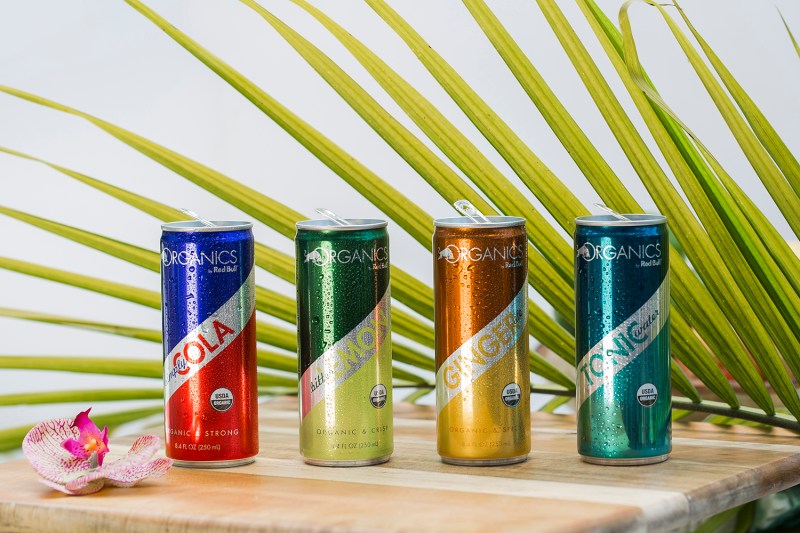
Releasing their ORGANICS label across North America, Red Bull designed the drinks to quench your thirst for all the moments you might reach for a Coke or sparkling tonic. They want you to not just pair them with spirits at the club, but to use to wash down lunch or have as a solo summer snack.
Of course, ORGANICS isn’t shying away from being thought of as a mixer.
Red Bull designed the drinks to quench your thirst for all the moments you might reach for a Coke or sparkling tonic.
To christen the launch of ORGANICS, Red Bull paired up with The Cocktail Bandits out of Charleston, South Carolina to create custom cocktail (bulltails?) featuring the new sodas. Go directly to the end of this article if you want to get to mixing and skip the dirty details.
By dirty details, we mean Red Bull Simply Cola isn’t exactly new. If you thought it sounded familiar that’s because this natural spin on cola was first introduced by Red Bull in 2008. Three years later in 2011, Simply Cola was discontinued when the company also pulled an energy shot off the shelf.
There wasn’t a health concern or anything, the drink just existed before its time — aka the craft mixer/soda craze that we’re currently going through.
The Austrian-born energy drink mammoth was selling Simply Cola for about $1.50 vs. traditional Coke and Pepsi that ran $1, and some believe this “premium” price point was one factor in its demise. Red Bull shifted focus to its main man: the energy drink.
Now that consumers care more about organic ingredients and artisanal drinks, Simply Cola is primed for a Robert Downey Jr.-sized comeback.
Today’s Simply Cola is dubbed “not your average cola,” and is sweetened and spiced with plant extracts like kola nut, ginger, and cinnamon. Which definitely piques our interest and makes us want to try it with whiskey.
Red Bull is quadrupling down with its ORGANICS sodas, which are touted as naturally caffeinated drinks (in case you need a buzz for extreme ice cross racing) that are “subtly complex…aromatically bright…(and) exquisitely delicate.” The taste complexities of these sodas are definitely modern with Red Bull ORGANICS Ginger Ale, for instance, flavored with bergamot extracts. Meanwhile, the Tonic Water is mixed with bitter Quassia plant and Chinabark to punch up the taste.
So no, the same bros ordering vodka red bulls might not be ORGANICS guys, but that means a new craft consumer will now rep the red horns.
About those Red Bull soda cocktails …
- Ginger Snaps: mix Red Bull Ginger Ale with gin, lime juice, and agave.
- The Pina Paradiso: bring together tequila, pineapple juice and lemon juice, topped with Tonic Water.
- The Whiskey is Key: combines Simply Cola with whiskey.
- Aperol Hits: features Aperol (of course), orange juice and ORGANICS by Red Bull Bitter Lemon.
